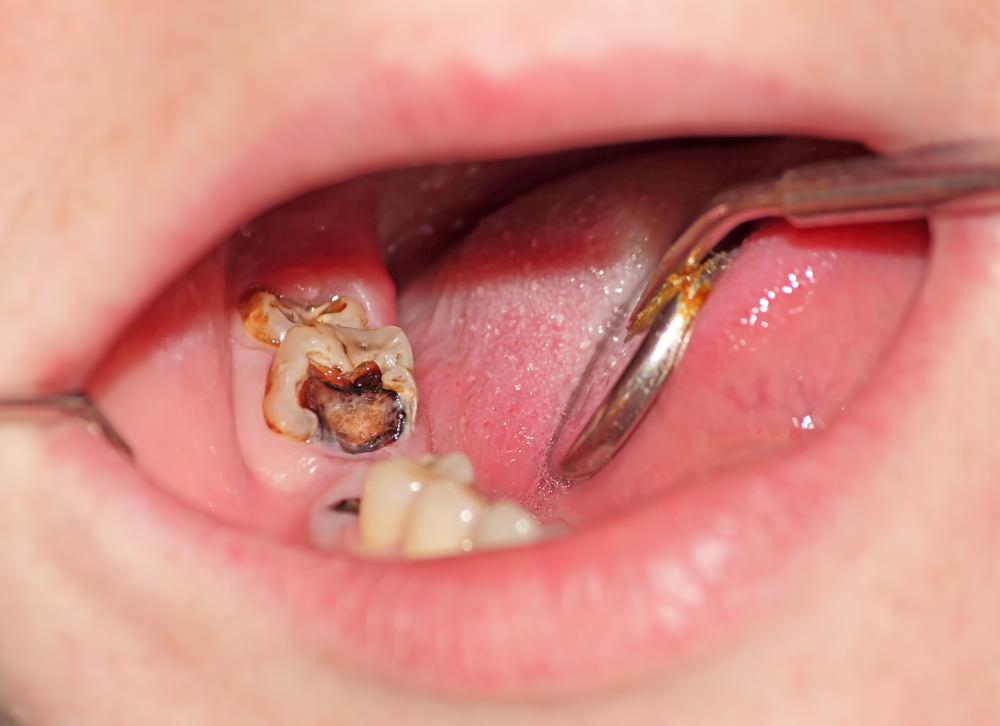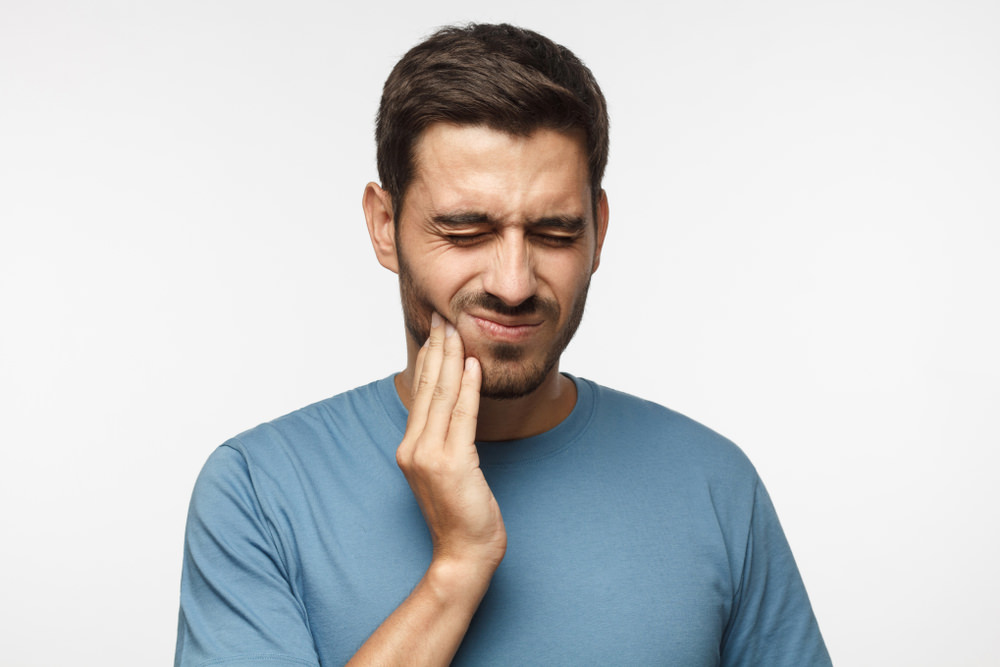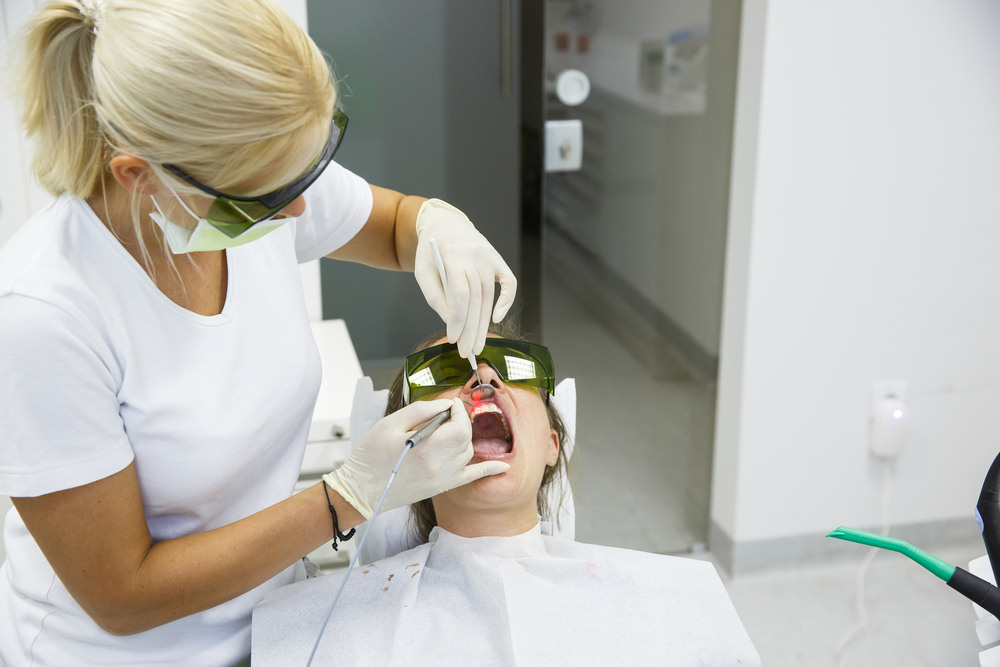The Ins And Outs Of Toothaches And When To See A Dentist
Toothaches often cause panic and anxiety about visiting a dentist, but you can be more prepared by understanding the ins and outs of toothaches.
If you have a toothache, you may decide to leave it alone, wait and see and or visit a dentist.
But are you making the pain worse?
It’s important to understand more about when to visit a dentist and what can cause a toothache.
What Are The Common Causes Of Toothaches?
A toothache is exactly as it sounds – an ache or pain in or around your tooth. Toothaches can be a sign that there is a deeper issue with your tooth or gums.
But what causes this pain and how many common causes are there?
Toothaches can be caused by a range of things – there is even referred pain which means it’s not necessarily that tooth or area of the gums that has an issue.
One of the most common causes of a toothache is tooth decay and issues stemming from that.
If tooth decay i.e. a cavity, goes untreated it can cause pain in the tooth.

Tooth decay can cause a toothache
If it goes untreated for too long, you can develop a painful abscess on your gums.
This means you have an infection near your tooth or in the pulp inside your tooth.
This requires attention from your dentist fairly quickly.
You shouldn’t panic, but a dental abscess can spread. If it spreads to your brain – which is very rare – it can even be life-threatening. Make a dental appointment as soon you think you may have an abscess
A toothache can also be caused by an impacted tooth which is where a tooth is stuck in your gums or bone – such as a wisdom tooth.
This means your tooth is unable to grow and come out of your gum properly. This requires a visit to the dentist to avoid further complications.
Other causes of toothaches can be from referred pain such as sinus pain.
The roots of your teeth are close to your sinuses and so any sinus pain such as sinusitis can cause referred tooth pain.
Much rarer causes of toothache are heart disease, lung cancer, a warning sign of a heart attack or forms of neuralgia.
When you have a toothache, it usually will require a visit to the dentist. If the dentist is unsure of what is causing your toothache, they will refer you to your GP for further investigation.
What Are Common Treatments for Toothaches?
A toothache will often lead you into the dentist’s chair, as there aren’t any real home remedies for a toothache caused by a deeper issue such as an impacted tooth, tooth decay or abscess.
Sinusitis causing referred pain in your mouth will be treated by your general practitioner rather than a dentist.
When you visit the dentist for a toothache, the dentist will perform an oral exam and perhaps take x-rays to ascertain the reason for the pain.
The treatment will depend on the cause of the pain. If you’re unable to get to the dentist quickly, you can take pain medication at home.
You can try pain medication such as aspirin, natural remedies of clove oil on the affected tooth or decongestants if you think the pain is from sinusitis.
You should always take the advice of your dentist or GP before trying home remedies or pain medication.
If the toothache is caused by decay, the dentist will remove the decay with a drill and fill the space with a filling.
If you have an infection or an abscess, they may give you pain medication and antibiotics to clear the infection.
If you are having a dental emergency, you should go to the emergency room or contact your emergency dentist.
A dental emergency includes swelling in your jaw or face; chest pain, dizziness or trouble breathing; wheezing or coughing up blood; trouble swallowing.
If you experience any of these extreme symptoms, seek immediate treatment.
The dentist may also refer you to your GP if they can’t find the cause of your toothache and think it is perhaps referred to pain or caused by a different ailment.
Will A Toothache Go Away On Its Own?
Unfortunately, a toothache is usually unlikely to go away on its own.
This is because there is generally a cause for the pain – even if it’s referred pain.
Some dentists say that a toothache that does go away on its own could signal a more serious problem.
If a throbbing ache suddenly stops, you should still visit the dentist. This is because the issue could have spread to a more worrying point.
Tooth decay could have moved into the pulp of your tooth where your nerves are, an infection could have impacted your nerves or spread to the bone or even spread further in the body.
Most toothaches will have a cause. If it’s a dental problem as discussed, such as decay or an abscess, this needs dental treatment.
If the pain is caused by referral pain such as sinusitis, this will need addressing by your GP.
It’s important not to ignore a toothache and always seek your dentist’s advice.
Taking pain medication can help while you’re waiting to see the dentist, but is not a long-term treatment and shouldn’t be used as such.
It’s much easier to seek treatment early on with a toothache, rather than wait and see a more complex issue develop.
Tooth decay that can be treated with a simple filling or an abscess that can be treated with antibiotics is a lot easier to treat than the alternative.
Further complications caused by untreated toothaches can lead to a root canal, tooth removal or a crown. This is more painful, costs more and takes more time than a simple filling.
Does Eating Too Much Sugar Cause A Toothache?
A toothache can occur after eating sugar for several reasons. This includes damaged enamel, tooth decay and receding gums.
Unfortunately, some people have teeth that are more sensitive than others and this can be triggered by sugar.
This pain can also be due to damage in the enamel of your teeth.
Damage to your enamel can occur if you eat too many foods high in acid or from brushing too hard.
This can lead to the outer layer of enamel being damaged and expose the sensitive inner layer of your teeth. If you’re sensitive to sugar, you can take some steps to help reduce the pain.
Try a softer toothbrush such as one marked ‘sensitive’, don’t brush too hard and try a toothpaste designed for sensitive teeth that also protects them.
Your dentist can also give you some great advice on reducing the sensitivity of your teeth and preventing further issues.
You may also experience sensitivity to food due to receding gums.
When your gums recede, they expose the more sensitive areas around your teeth. You need to keep an eye on such pain as sugar that collects in those areas can lead to tooth decay.
Receding gums can also signal gum disease so you should always visit your dentist if you notice a sensitivity to teeth or receding gums.
Gum disease can be reversed and prevented if caught early enough, however, advanced gum disease can lead to further complications.
Sensitivity to sugar can also be due to tooth decay – and sugar can lead to tooth decay.
If this is the cause of your sensitivity, your dentist will need to remove the decay and place a filling in the space.
They can then suggest preventative measures or special products to help reduce sensitivity and tooth decay.
If your teeth are sensitive to sugar, don’t panic. It’s usually not a huge problem and your dentist can provide treatment the reduce this sensitivity.
Make sure to book an appointment though, as catching any issues early is key to avoiding more costly and problematic oral issues.
If you have a sweet tooth, it may also be worth looking at reducing your sugar intake or finding lower sugar alternatives.
Sugar is one of the leading causes of tooth decay as the molecules in sugar combine with the saliva and bacteria in your mouth and leads to plaque.
When plaque is left untreated it can dissolve your tooth enamel and lead to cavities.
Brushing your teeth after eating sugary foods can help prevent tooth decay.
Sugary drinks and sugar in coffee/tea are often forgotten about but should also be followed up by brushing your teeth.
What Are Some Natural Treatments For Toothaches?
A toothache should always be examined by a dentist, however, you may need to find some relief while waiting for your appointment and be interested in natural remedies.
There are actually a lot of natural remedies for tooth pain which can assist in providing some relief to issues such as an abscess or swelling.
There are a couple of different substances you can try rinsing your mouth with to see if it helps with your discomfort.
Saltwater is the most common as salt is a natural disinfectant and can reduce inflammation and help to speed healing of wounds.
Rinsing your mouth can also help dislodge food particles or debris stuck between your teeth – flossing is the best option for removing food from teeth.
Don’t swallow anything that you rinse your mouth with and make sure you always spit out the substance.
You can also rinse with hydrogen peroxide but it must be diluted! This rinse will help to relieve both inflammation and pain as well as killing bacteria.
Hydrogen peroxide can also reduce plaque or heal bleeding gums.
A cold compress is also a go-to for many ailments as it can relieve pain, swelling and inflammation.
Applying a cold compress causes the blood vessels to constrict and reduce the pain. You should only apply a cold compress for 20 minutes at a time and not directly to the skin – think a towel over it.
Some natural substances that can assist with a toothache include peppermint tea bags, garlic and vanilla extract (pure extract).
All of these options are easy to find and use, however, vanilla extract is the most expensive of the three options.
If you want to try garlic, you can apply it as a paste to the affected area inside your mouth.
Garlic is known to kill bad bacteria and also help relieve pain. The taste will be strong though so you should be prepared for that.
Vanilla extract is known as an antioxidant which can assist with speeding up healing due to its alcohol content.
You can dab a small amount into your mouth on the sore area to try this method.
Peppermint tea bags sound like a strange option but they can numb the pain and soothe sensitive gums when slightly warm.
People also use natural options such as clove (numbing pain and reducing inflammation), guava leaves (anti-inflammatory and antimicrobial), wheatgrass (relieving inflammation and speeding up healing) and thyme (antibacterial and antioxidant).
Again, these are not meant to be long-term solutions and you should always visit your dentist as soon as you can to get to the root cause of your toothache.
Do People Get More Toothaches As They Get Older?
As you age, you may experience more pain or sensitivity in your teeth.
This is normal as your teeth are wearing as you grow older and use them more.
Some older people may also have receding gums which leads to sensitivity.
Dry mouth is also common in older people who are taking medication and increases tooth sensitivity.
Other factors can include a lack of dental care throughout your life, meaning that small problems have progressed to larger ones or you are not taking the correct preventative measures to protect your teeth.
In Australia, it’s estimated that 1 in 10 people aged 65 and over experience a toothache.
Unfortunately, older people who don’t have private health insurance are more likely to complain of a toothache than those who were at 10% over 8%.
Older Australians also experience more missing teeth and oral disease than other Australians.
Those living in remote areas also experience larger numbers of missing teeth than those in the city, often due to lack of dental care.
Normal wear and tear on teeth as you age is expected, however, some elderly Australians are unable to access proper dental care due to lack of transport, lack of funds or insurance or lack of prioritising dental health
What Are The Best Ways To Avoid Toothaches?
Many toothaches can be prevented from regular dental care and home dental hygiene.
Due to many toothaches being caused by issues such as tooth decay or abscesses, visiting a dentist regularly will help to catch these before they become larger or more painful.
Regular home care of your teeth such as brushing and flossing will also assist in preventing tooth decay and protecting your teeth and gums from plaque-related issues or gum disease.
It’s recommended that you visit a dentist 1-2 times a year for a check-up and clean, brush your teeth twice a day and floss once a day.
Keeping an eye on your diet is also important as is exercise. This will assist your heart and lungs in staying healthy which can also lead to a toothache.
Eating less sugar will assist you in reducing your risk of tooth decay.
Your dentist can provide more advice based on your personal situation such as the best toothbrush, toothpaste, floss and other dental care options.
Conclusion
Toothaches should never be ignored and the best course of action is to always visit a dentist.
There can be many causes of toothaches, leading from simple issues such as tooth decay or sinusitis, to more serious issues such as infection or disease elsewhere in your body.
If you are experiencing a toothache, you should book an appointment with your dentist immediately, in the meantime, you can take basic pain medication or try some natural remedies to help relieve some pain and inflammation.
If your dentist is unable to find the cause of the pain, he will likely refer you to your general practitioner.
If she is able to find the cause, she may be able to treat immediately – in the case of a cavity – or provide you with medication or antibiotics for an infection.
Any other issues such as gum disease or nerve damage will require advice and usually a treatment plan from your dentist.
It’s important that if you are experiencing extreme symptoms that you visit an emergency room or an emergency dentist as you could have a more serious problem.
If in doubt, always call your dentist and make an appointment to get it checked out.
By Dr. V
Created at November 17, 2020, Updated at January 25, 2025












